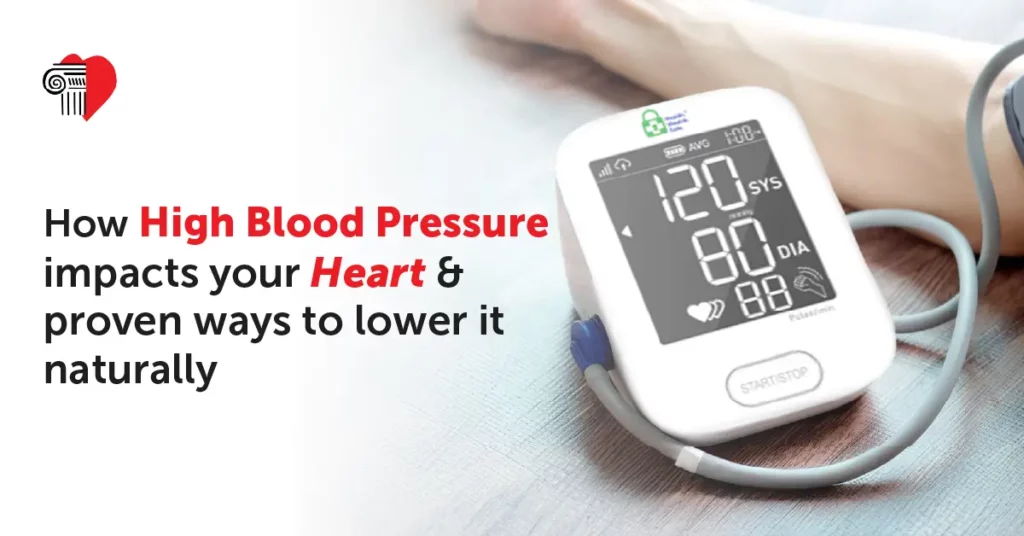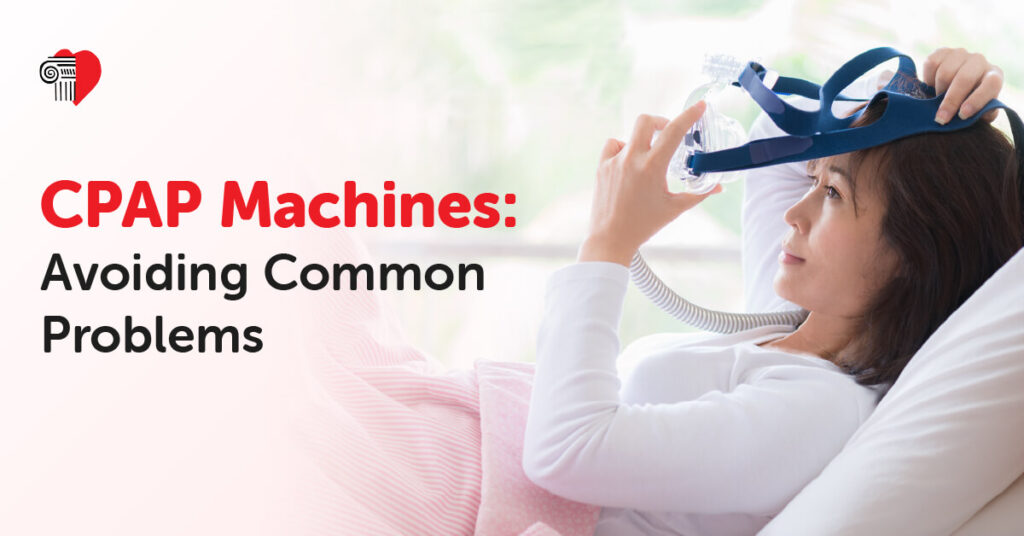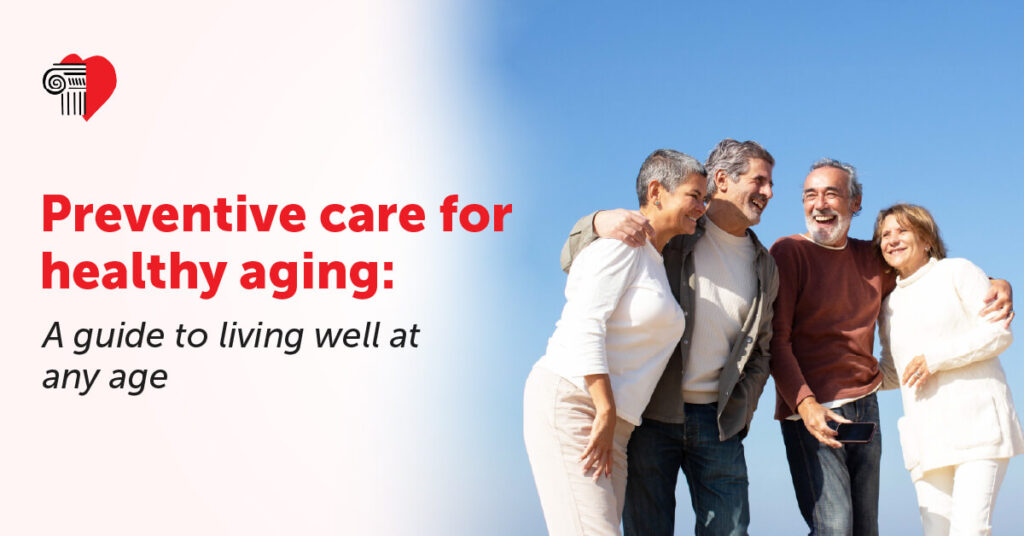
High blood pressure, also known as hypertension, is often referred to as the “silent killer” because it develops gradually without noticeable symptoms, yet it can significantly impact your heart and overall well-being. It can seriously harm your heart and general health even when you don’t have any obvious indications of it. If you or a loved one has been diagnosed with high blood pressure, you might be wondering: How does high blood pressure affect the heart? And more importantly, what can you do to keep it under control? Let’s dive in and find out.
How Does High Blood Pressure Affect the Heart?
Your heart is a hardworking muscle, pumping blood throughout your body day and night. But when your blood pressure is too high, it forces your heart to work harder than it should. Over time, this extra strain can lead to serious heart problems, including:
1. Thickened Heart Muscle (Left Ventricular Hypertrophy)
High blood pressure makes your heart pump with more force. This can cause the walls of your heart’s main pumping chamber (the left ventricle) to thicken. While this may sound like a good thing, it’s not. A thickened heart muscle becomes stiff and less efficient, increasing your risk of heart failure.
2. Heart Attack & Stroke:
Hypertension damages your arteries by making them less flexible and more prone to plaque buildup. This can lead to blockages, restricting blood flow to your heart and brain. When a blockage occurs in the heart, it can result in a heart attack. If it happens in the brain, it can lead to a stroke—both of which can be life-threatening.
3. Heart Failure:
Over time, the constant pressure on your heart can weaken it. A weakened heart struggles to pump blood efficiently, leading to heart failure. This condition causes symptoms like fatigue, shortness of breath, and swelling in the legs and ankles.
4. Aneurysm
Hypertension can cause your arteries to weaken and bulge, leading to an aneurysm. If an aneurysm ruptures, it may lead to severe internal bleeding, requiring immediate medical attention.
With such serious risks, it’s clear that keeping your blood pressure in check is crucial. The good news? Fortunately, there are numerous effective ways to manage high blood pressure and protect your heart.
Ways to Lower Your Blood Pressure
Effectively managing high blood pressure can be simple with the right lifestyle choices and guidance. With a few lifestyle changes and the right medical support, you can take control of your heart health.
1. Eat a Heart-Healthy Diet
The food you choose to eat plays a significant role in influencing your blood pressure levels. A heart-friendly diet includes:
- Plenty of fruits and vegetables (rich in potassium, which helps balance sodium levels)
- Whole grains instead of refined carbs
- Lean proteins like chicken, fish, and plant-based options
- Low-fat dairy products
- Healthy fats from nuts, seeds, and olive oil
- Less sodium (cut back on processed foods, canned soups, and salty snacks)
The DASH (Dietary Approaches to Stop Hypertension) diet has been shown to lower blood pressure significantly. If you’re looking for a simple guide, this diet is a great place to start.

2. Stay Active
Exercise is a fantastic way to keep your blood pressure in check. Strive to incorporate at least 150 minutes of moderate exercise weekly, such as brisk walking, cycling, or swimming, to strengthen your heart and boost overall well-being. Activities like walking, swimming, cycling, or even dancing can make a big difference. Regular movement keeps your heart strong and helps maintain a healthy weight, both of which are essential for controlling hypertension.

3. Maintain a Healthy Weight
Excess weight puts extra strain on your heart. If you’re overweight, even losing 5–10% of your body weight can help lower your blood pressure.
4. Manage Stress
Stress can cause temporary spikes in blood pressure, and chronic stress can contribute to long-term hypertension. Try relaxation techniques like:
- Deep breathing exercises
- Meditation
- Yoga
- Listening to calming music
- Spending time with loved ones
5. Limit Alcohol & Caffeine
Too much alcohol can raise your blood pressure. Enjoy alcohol and caffeine in moderation—one drink daily for women, two for men. Caffeine can also cause temporary spikes, so keep an eye on how much coffee or energy drinks you consume.
6. Quit Smoking
Smoking harms blood vessels, elevates blood pressure, and heightens heart disease risks. Quitting smoking is one of the greatest gifts you can give your heart.
7. Monitor Your Blood Pressure Regularly
Keeping track of your blood pressure at home can help you stay on top of any changes. Home blood pressure monitors are convenient, user-friendly, and readily accessible for daily use. If you notice consistently high readings, talk to your doctor right away.

8. Work with a Cardiologist for Blood Pressure Management
If your blood pressure remains high despite lifestyle changes, seeking medical help is crucial. A cardiologist for blood pressure can assess your condition, recommend personalized treatment, and prescribe medications if needed. Medications like diuretics, beta-blockers, ACE inhibitors, and calcium channel blockers are commonly used to help control hypertension.
Final Thoughts: Take Control of Your Heart Health
High blood pressure is a serious condition, but it’s also manageable. Understanding how high blood pressure affects the heart and taking steps to control it can prevent serious complications.
Start small—swap out processed foods for healthier alternatives, take a daily walk, and practice stress relief techniques. If needed, work with a cardiologist for blood pressure to find the best approach for you. Your heart works hard for you every day—show it some love by keeping your blood pressure in check.
If you have any concerns about your heart health, don’t hesitate to consult a healthcare professional. Visit AHC Specialists for expert guidance and care.




